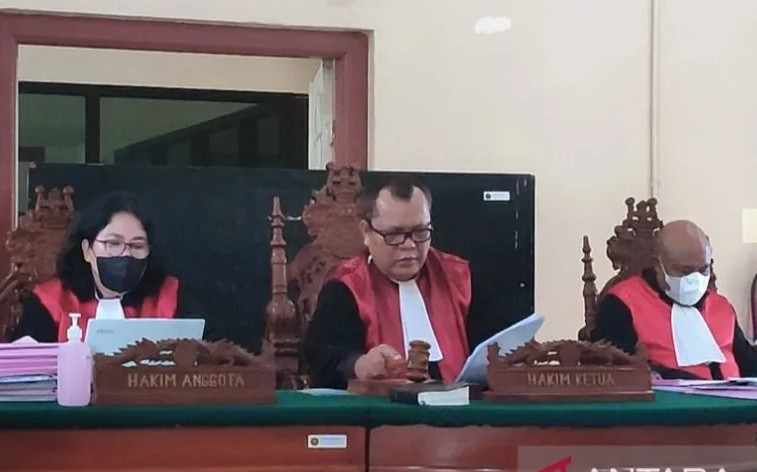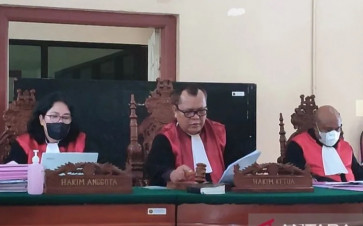Popular Reads
Top Results
Can't find what you're looking for?
View all search resultsPopular Reads
Top Results
Can't find what you're looking for?
View all search resultsLitigation funding should be regulated for equal access to justice
As the OECD has emphasized in a 2019 report, legislating litigation funding can positively a country’s impact socioeconomic development, particularly in ensuring the delivery of equitable access to justice for all citizens, not just the rich.
Change text size
Gift Premium Articles
to Anyone
I
t is common knowledge that lawsuits in Indonesia are costly and lengthy, despite the principle of quick, simple and low-cost legal proceedings. In practice, however, litigation at a district court normally takes six to nine months.
If the case drags on to the higher courts, it will take more than a year for the disputing parties to reach settlement through a final and binding court decision. In addition, more time will be needed to execute the final decision. To do so, the plaintiff ideally hires a lawyer to file a claim, which will cost a significant amount of money.
The problem is that most plaintiffs seek to claim compensation against the defendant, which means that they need the money, not vice versa. On the other hand, if a plaintiff files an independent lawsuit, it will require extra effort, time and energy.
In many cases, these circumstances discourage the injured party from filing a lawsuit, creating a gap between the rich and poor in their access to justice. The Organisation for Economic Co-operation and Development (OECD), in its Equal Access to Justice for Inclusive Growth report, states that unequal access to justice may “narrow economic opportunities, reinforce the poverty trap and undermine human potential”, which could affect growth for both individuals and societies.
There is a silver lining in spite of these difficulties, which is to pursue litigation funding, also known as third-party funding. In litigation funding, a third party provides a plaintiff with the funds they need to pursue litigation and in return, the third-party litigation funder receives a portion of the money that the plaintiff recovers.
Litigation funding has been permitted in England and Wales since 1967, although with uncertainty around the particular circumstances, and was not generally accepted until the early 2000s. In Australia, litigation funding started being developed in the early 1990s and was then fully permitted in 2006 in Campbells Cash and Carry Pty. Limited v Fostif Pty. Ltd.
Indonesia has no regulation on litigation funding to date. It is neither recognized nor prohibited. In the absence of relevant regulation, it should fall under Indonesia’s Contract Law. That being said, the country’s Contract Law states that the parties to a contract are free to create such an agreement as long as it does not violate existing laws or public order. It should be noted, however, that the involvement of a third-party litigation funder will not interfere with the client-attorney relationship.


















